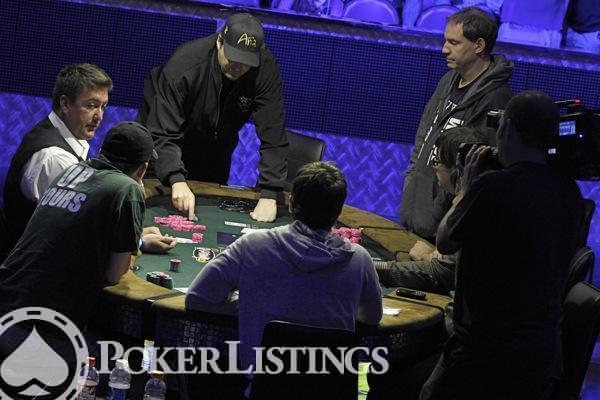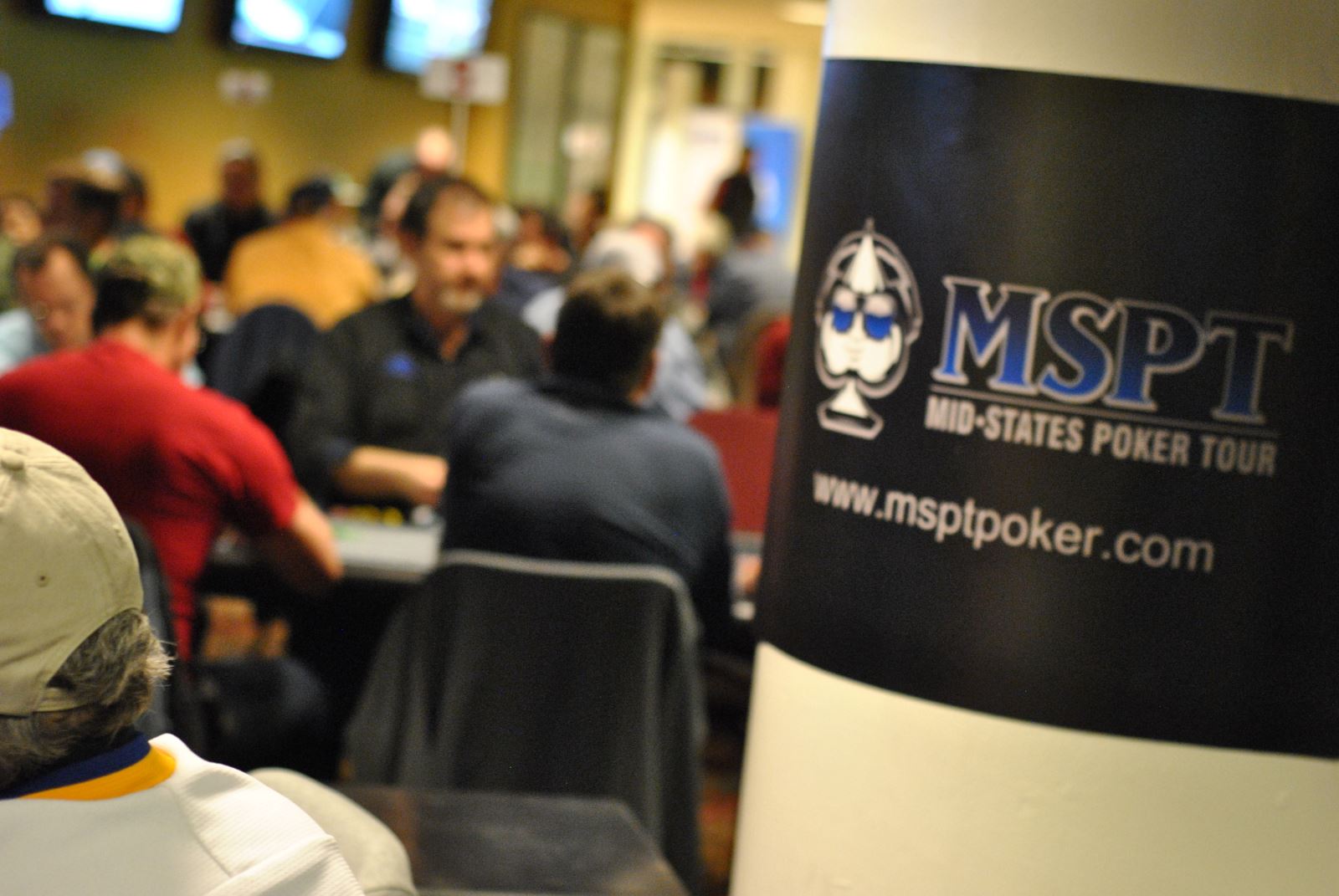Fundamentals of Poker - General GuidelinesMason Malmuth
- With this being said, I wanted to go over a few important ground rules to practice proper table etiquette. These rules will allow us to so provide every player with the best online poker experience possible. Keeping the game fair: We know you get excited about the action unfolding at the poker table and we love it.
- Basic poker etiquette includes these tips: Always play in turn. Be aware of when it's your turn to post the blinds and do so promptly. Any time there is a discrepancy at the table, talk to the dealer — not the other players — about it.
Whether you're playing at a home game or in a casino, there is basic poker etiquette that any player should know and follow. These (usually) unspoken poker rules of good behavior make sure the game is fair and runs smoothly, no matter what kind of game you're playing.
Two Plus Two Magazine, Vol. 15, No. 11- General Guidelines
- Seven Card Stud
- Limit Texas Hold'em


Although poker is a pleasurable pastime, it's enjoyable only when the game runs smoothly and quickly. Most of the responsibility for ensuring this rests with the house dealer, but players can do their part to keep the game moving in an orderly fashion. So you will know what is expected of you at the poker table, we are providing the following 'rules' of poker etiquette.
Act in turn.
In poker, the action proceeds clockwise around the table, one player at a time. Acting out of turn not only shows a basic disregard of propriety, but also may give a player an unfair advantage over his remaining opponents. As an example, discarding your hand before the action gets to you may tell a player who should have acted ahead of you that it's now easier for him to get away with a bluff. This obviously is not fair to those players who already have chosen not to bet.
Don't throw your chips into the pot.

Throwing your chips directly into the pot, also known as 'splashing the pot,' makes it difficult for the dealer and other players to determine whether you have bet the correct amount. In fact, when a player splashes the pot, it sometimes may be necessary for the dealer to interrupt play and count down the pot to make sure it's correct. The proper way to make your bet is to place it directly in front of you on the table. The dealer will inspect your bet for accuracy and then will add it to the other chips in the center of the table.
Avoid making a 'string bet' or 'string raise.'
When you bet or raise, you should place the proper amount of chips in the pot at one time. A string bet/raise is an illegal play and occurs when a player places less than the full raise in the pot and, without verbally announcing a raise, returns to his stack to get more chips. This play is prohibited, as an unscrupulous player can use it to his advantage. As a precaution, always say, 'Raise,' when you intend to raise.
Make decisions in a timely manner.
Most starting hands in poker are thrown away, which means that a great deal of your time is spent watching, not playing. Thus you want your opponents to play as fast as possible, and you should do the same. This doesn't mean that when you're faced with a tough decision, you can't take some time to figure it out. In fact, if you need a moment, say, 'Time, please.' But whenever possible, act on your hand quickly.
Keep your cards on the table.
Most cardrooms prohibit you from taking your cards off the table. However, it's important to keep your cards in front of you for two additional reasons. First, when you pick up your hand, it may be seen by a player sitting next to you, which gives him an unfair advantage. Second, the dealer usually looks down and in front of you. If he doesn't see your hand, he may deal your next card to someone else on a later round, causing confusion.
Turn all of your cards face up at the showdown.
This is necessary so the dealer can read your hand to determine whether you've won the pot. In addition, the other players will see that you have a legitimate hand made up of seven different cards. If you turn up only the five cards that you think make the best hand, not only will the other players object, but also you may have missed seeing the winning hand. Needless to say, if no one calls your final bet or raise, it's not necessary to show your cards.
Don't discuss your hand during play.
Providing information about your hand to other players, even if you have thrown your cards away, may give someone an unfair advantage. For example, if you abandon your hand and then remark, 'I just threw away an ace and a king,' a player holding one of these cards now may choose not to enter the pot with a hand he otherwise would have played. Tattoo casino ideas.
The games are played 'table stakes.'
This means that only the money and chips you have in front of you on the table are in play. If you run out of money during the play of a hand, you are said to be 'all in' and can contest only the part of the pot that your bets cover. You are not allowed to reach into your pocket and produce more money during that hand. (Notice that you will not lose the pot because someone has bet more money than you currently have on the table.) In addition, you are not permitted to remove money from the table until you are ready to leave the game.
Tipping is appreciated.
Though not obligatory, it's customary to give the dealer a tip when you win an average-sized pot. Tipping is an accepted way of thanking the dealer for performing his job in a professional and courteous manner.Poker Strategy and Other Topics - November 2019
by Carlos Welch
by Robert Samuels
by Kevin Haney
by Kevin Haney
by Ben Saxton
by Bryan Clark

Although poker is a pleasurable pastime, it's enjoyable only when the game runs smoothly and quickly. Most of the responsibility for ensuring this rests with the house dealer, but players can do their part to keep the game moving in an orderly fashion. So you will know what is expected of you at the poker table, we are providing the following 'rules' of poker etiquette.
Act in turn.
In poker, the action proceeds clockwise around the table, one player at a time. Acting out of turn not only shows a basic disregard of propriety, but also may give a player an unfair advantage over his remaining opponents. As an example, discarding your hand before the action gets to you may tell a player who should have acted ahead of you that it's now easier for him to get away with a bluff. This obviously is not fair to those players who already have chosen not to bet.
Don't throw your chips into the pot.
Throwing your chips directly into the pot, also known as 'splashing the pot,' makes it difficult for the dealer and other players to determine whether you have bet the correct amount. In fact, when a player splashes the pot, it sometimes may be necessary for the dealer to interrupt play and count down the pot to make sure it's correct. The proper way to make your bet is to place it directly in front of you on the table. The dealer will inspect your bet for accuracy and then will add it to the other chips in the center of the table.
Avoid making a 'string bet' or 'string raise.'
When you bet or raise, you should place the proper amount of chips in the pot at one time. A string bet/raise is an illegal play and occurs when a player places less than the full raise in the pot and, without verbally announcing a raise, returns to his stack to get more chips. This play is prohibited, as an unscrupulous player can use it to his advantage. As a precaution, always say, 'Raise,' when you intend to raise.
Make decisions in a timely manner.
Most starting hands in poker are thrown away, which means that a great deal of your time is spent watching, not playing. Thus you want your opponents to play as fast as possible, and you should do the same. This doesn't mean that when you're faced with a tough decision, you can't take some time to figure it out. In fact, if you need a moment, say, 'Time, please.' But whenever possible, act on your hand quickly.
Keep your cards on the table.
Most cardrooms prohibit you from taking your cards off the table. However, it's important to keep your cards in front of you for two additional reasons. First, when you pick up your hand, it may be seen by a player sitting next to you, which gives him an unfair advantage. Second, the dealer usually looks down and in front of you. If he doesn't see your hand, he may deal your next card to someone else on a later round, causing confusion.
Turn all of your cards face up at the showdown.
This is necessary so the dealer can read your hand to determine whether you've won the pot. In addition, the other players will see that you have a legitimate hand made up of seven different cards. If you turn up only the five cards that you think make the best hand, not only will the other players object, but also you may have missed seeing the winning hand. Needless to say, if no one calls your final bet or raise, it's not necessary to show your cards.
Don't discuss your hand during play.
Providing information about your hand to other players, even if you have thrown your cards away, may give someone an unfair advantage. For example, if you abandon your hand and then remark, 'I just threw away an ace and a king,' a player holding one of these cards now may choose not to enter the pot with a hand he otherwise would have played. Tattoo casino ideas.
The games are played 'table stakes.'
This means that only the money and chips you have in front of you on the table are in play. If you run out of money during the play of a hand, you are said to be 'all in' and can contest only the part of the pot that your bets cover. You are not allowed to reach into your pocket and produce more money during that hand. (Notice that you will not lose the pot because someone has bet more money than you currently have on the table.) In addition, you are not permitted to remove money from the table until you are ready to leave the game.
Tipping is appreciated.
Though not obligatory, it's customary to give the dealer a tip when you win an average-sized pot. Tipping is an accepted way of thanking the dealer for performing his job in a professional and courteous manner.Poker Strategy and Other Topics - November 2019
by Carlos Welch
by Robert Samuels
by Kevin Haney
by Kevin Haney
by Ben Saxton
by Bryan Clark
by Felipe Garcia, CFA and Aaron Byrd, CFA
Proper Poker Etiquette Rules
by Nick Willett
Proper Poker Etiquette Tips
by Mason Malmuth